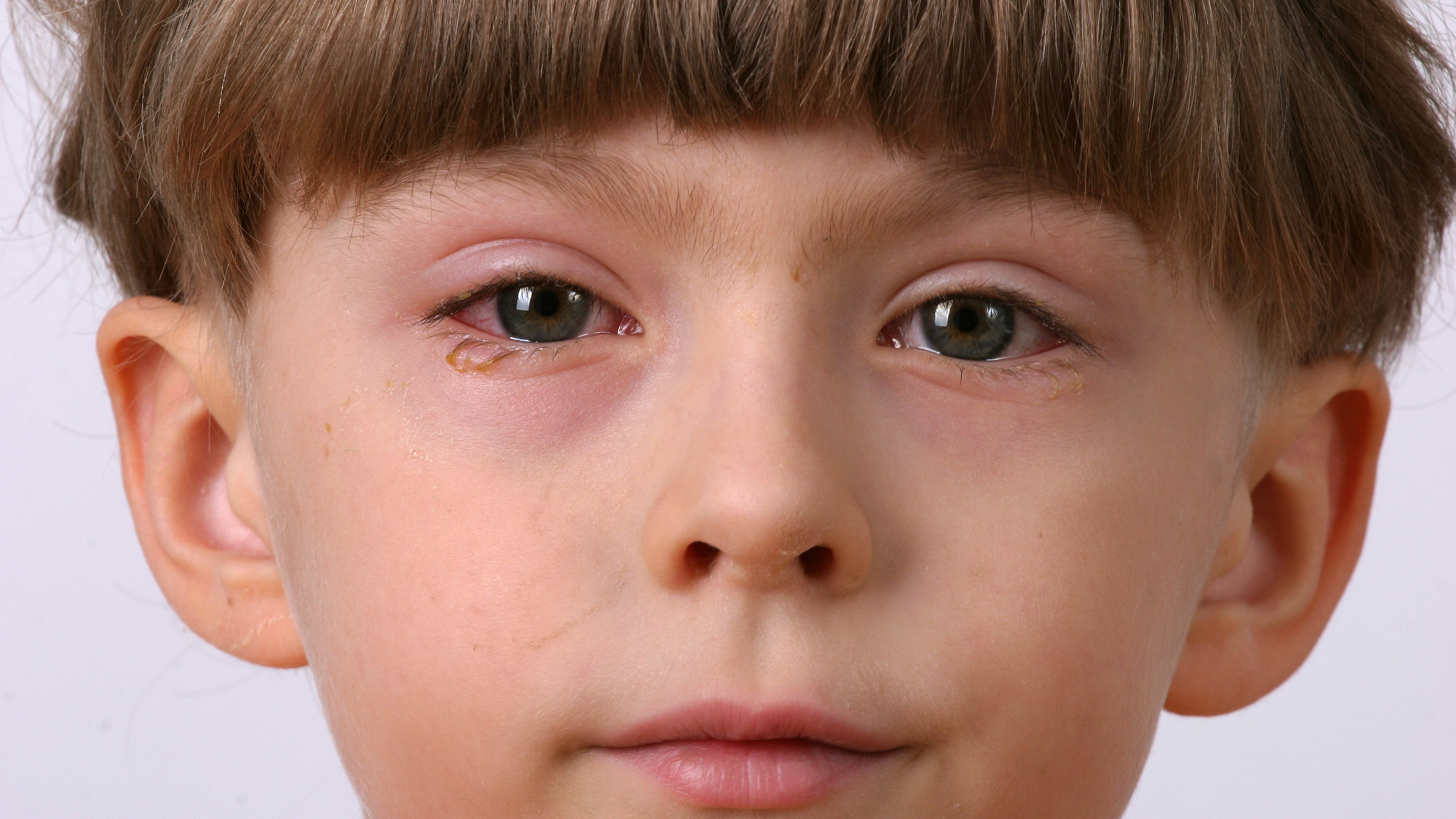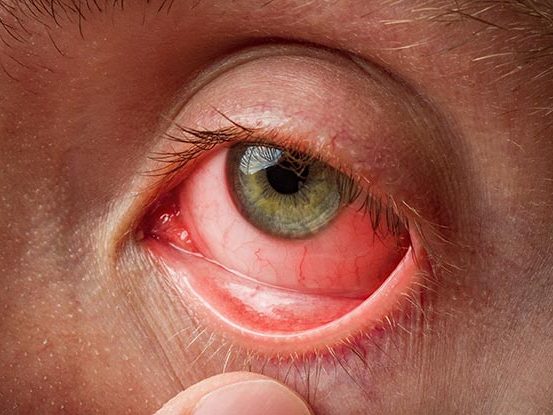Pink Eye Or Conjunctivitis

Pink eye or conjunctivitis, is a very common infection of the conjunctiva caused by bacteria, viruses, chemicals, and allergens or irritants. It spreads by touching the infected person’s hands and personal items.
Here is all you need to know about pink eye or conjunctivitis or what you can do to avoid it.
How many types of conjunctivitis are there?
There are three main types of conjunctivitis:
- Viral
- Bacterial
- Allergic
- Viral Conjunctivitis
Viral conjunctivitis is a most common cause of all conjunctivitis cases and spread from person to person.
- Bacterial Conjunctivitis
Bacterial conjunctivitis is caused by a few bacteria and also spreads easily by touching the infected people.
- Allergic Conjunctivitis
Allergic conjunctivitis is caused by allergens including pollen, dust, mold, or smoke.
What are the Symptoms of Pink Eye?

These are the symptoms you may experience after having pink eye or conjunctivitis:
- Red and pink color in the white part of your eyes.
- Watery eyes
- Feeling of some object in the eyes
- Itching, irritation, and burning
- Eye discharge
- Crusty eyes in the morning
- eyes feels uncomfortable when contact lenses are on.
- Blurred vision
- Eyes become sensitive to light
- Eyelids become swollen
What are the Causes of Pink Eye?
When the conjunctiva of your eye gets inflamed, then the pink eye happens. The reason your conjunctiva becomes inflamed are:
- Virus
- Bacteria
- Products containing chemicals
- STIs
- Allergens
- Blocked tear duct
Is Pink Eye or Conjunctivitis Contagious?
Pink eye or conjunctivitis, is highly contagious and can be spread from person to person, but it cannot be spread by looking into the eyes of the infected person. An infected person is contagious until he shows symptoms of the infection. You can use Eye Drops on when doctors allow.
How is Pink Eye Or Conjunctivitis Spread?
Here are a few ways this infection spreads:
- It spreads by touching the hands of the infected person and then touching your eyes.
- It spreads by touching the infected surface and then touching your eyes.
- Putting the makeup of the infected person.
- It also spreads through sexual contact, like if a person touches the eyes after having sexual contact without washing their hands.
- Sexually transmitted diseases like chlamydia and gonorrhea can also cause severe conjunctivitis.
How to Avoid Pink Eye or Conjunctivitis?
You can protect yourself from pink eye or conjunctivitis, by following these few steps:
- Do not rub your eyes.
- Do not share personal belongings of someone, like towels, makeup, and contact lenses, etc.
- Do not shake hands with the infected person, and if you do accidentally, then wash your hands before touching your eyes.
- Change your bedding if someone else has used it.
- Wipe your eyes with a disposable tissue or cloth.
- Wash your hands frequently.
- Do not use the eyedrops of the infected person.
Pink Eye in Children
Pink eye is one of the most common infections in school-going children. Newborns can also get infections during birth through a few sexually transmitted diseases.
Conclusion
Pink eye and conjunctivitis can be cured with precautions and care, but if you think it is not going away or the symptoms are worsening, then contact a doctor immediately because it can also lead to blindness if not treated at the appropriate time.
FAQ’S
Is pink eye common?
Pink eye is one of the most common eye infections in the world, with millions of cases reported each year, and it spreads very easily.
What is the treatment for pink eye?
The treatment of pink eye will be prescribed by your doctor which will be according to the symptoms, condition, and medical history of the infected person. Treatment can be:
1-Antibiotics
2-Steroid eye drops
3-Tablets
4-Artificial tears
What are the serious complications of pink eye?
Pink eye or conjunctivitis, usually do not have any serious or long-term complications and go away after taking medicines. If you think that it is not getting better and the redness is not going away, then you should visit an ophthalmologist.
Similar Articles:
2-5 Ways of Tackling Depression the Natural Way
About Author

Content Creator at PharmaPULS
Dr. James
Meet Dr. James, a seasoned pharmacist with a rich background spanning over 11 years in the field. His unwavering dedication to healthcare and passion for fostering well-being led to the creation of PharmaPULS. Driven by a commitment to providing accurate and insightful information, he endeavors to empower individuals to make informed decisions about their health. Through PharmaPULS, Dr. James aspires to bridge the gap between medical expertise and public understanding, ensuring that everyone has access to reliable pharmaceutical insights.






